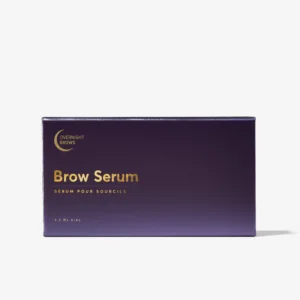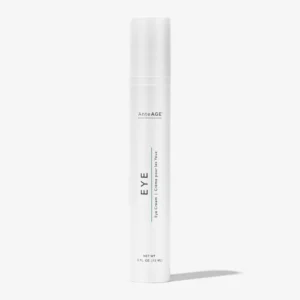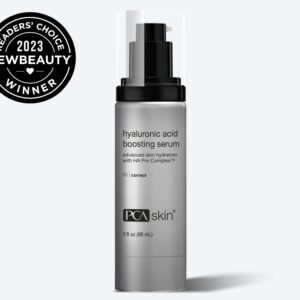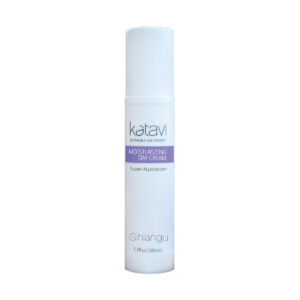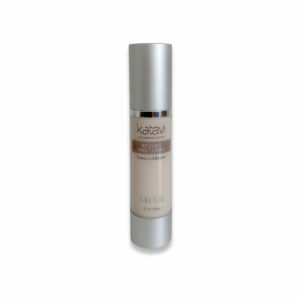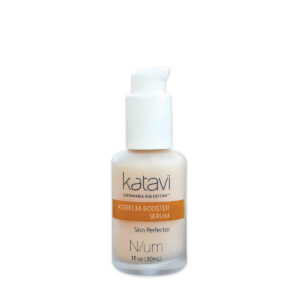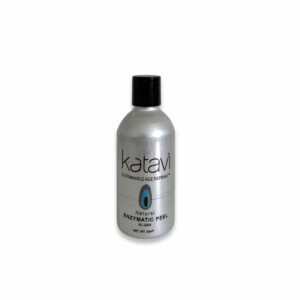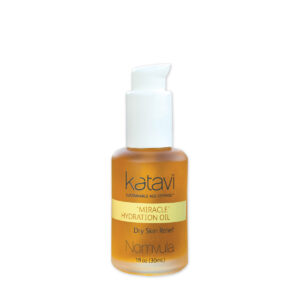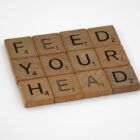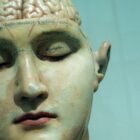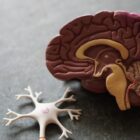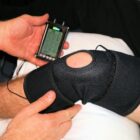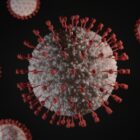What is Testosterone?
Testosterone is a hormone that belongs to a group of hormones called androgens. It is primarily produced in the testes in men and in smaller amounts in the ovaries in women. Testosterone plays a crucial role in the development and maintenance of male reproductive tissues and secondary sexual characteristics, such as muscle mass, bone density, facial hair growth, and voice deepening during puberty.
In men, testosterone levels typically peak during early adulthood and gradually decline with age. However, testosterone is also present in women, albeit in much lower concentrations, where it contributes to libido, bone density, and overall well-being.
Testosterone has several important functions in both men and women:
- Development of Male Reproductive Organs: Testosterone is essential for the development of male reproductive organs during fetal development.
- Puberty: During puberty, testosterone promotes the growth of facial and body hair, deepening of the voice, and development of muscle mass and strength in males.
- Sperm Production: Testosterone stimulates the production of sperm in the testes.
- Bone Density: Testosterone helps maintain bone density and strength in both men and women.
- Libido: Testosterone plays a role in regulating sexual desire (libido) in both men and women.
- Mood and Energy: Testosterone levels can influence mood, energy levels, and overall sense of well-being.
In addition to its natural functions, testosterone therapy is sometimes prescribed to treat conditions such as hypogonadism (low testosterone levels) in men, delayed puberty in boys, and certain types of breast cancer in women.
It’s important to note that while testosterone is crucial for many aspects of health, too much or too little testosterone can have adverse effects. Hormone levels should be balanced and monitored under the supervision of a healthcare professional.
Common Symptoms of Too Low Testosterone
Low testosterone levels, also known as hypogonadism, can lead to various symptoms in men. These symptoms can vary in severity and may include:
- Low Libido (Sex Drive): A decrease in sexual desire is one of the most common symptoms of low testosterone levels.
- Erectile Dysfunction: Low testosterone can contribute to difficulty achieving or maintaining erections.
- Fatigue and Decreased Energy: Individuals with low testosterone levels may experience fatigue, decreased energy levels, and a general sense of lethargy.
- Loss of Muscle Mass: Testosterone is essential for maintaining muscle mass and strength. Low testosterone levels can lead to a decrease in muscle mass and overall muscle strength.
- Increased Body Fat: Low testosterone levels may contribute to an increase in body fat, particularly around the abdomen.
- Decreased Bone Density: Testosterone helps maintain bone density. Low levels of testosterone can lead to decreased bone density, increasing the risk of osteoporosis and fractures.
- Mood Changes: Some individuals with low testosterone levels may experience mood changes, including irritability, depression, and a decrease in motivation.
- Decreased Cognitive Function: Testosterone plays a role in cognitive function, including memory and concentration. Low testosterone levels may contribute to cognitive decline.
- Loss of Hair: Some men with low testosterone levels may experience loss of body and facial hair.
- Changes in Sleep Patterns: Low testosterone levels can disrupt sleep patterns, leading to insomnia or other sleep disturbances.
It’s important to note that experiencing one or more of these symptoms does not necessarily mean that testosterone levels are low. Many other factors can contribute to these symptoms, and a healthcare provider can perform blood tests to measure testosterone levels and determine if low testosterone is the cause. Treatment options for low testosterone may include testosterone replacement therapy and addressing underlying health conditions contributing to low testosterone levels.
Balancing Testosterone Levels to Normal
Balancing testosterone levels to normal levels typically involves a combination of lifestyle changes, dietary adjustments, and medical interventions, depending on the underlying cause of the imbalance. Here are some strategies to help balance testosterone levels:
- Healthy Diet: Eating a balanced diet rich in nutrients is essential for overall health and hormone balance. Include plenty of fruits, vegetables, lean proteins, healthy fats, and whole grains in your diet. Avoid excessive consumption of processed foods, sugars, and unhealthy fats.
- Maintain a Healthy Weight: Obesity and excess body fat can contribute to hormonal imbalances, including low testosterone levels. Losing weight through a combination of regular exercise and healthy eating can help improve testosterone levels.
- Regular Exercise: Engaging in regular physical activity, including both aerobic exercise and strength training, can help increase testosterone levels. Aim for at least 150 minutes of moderate-intensity exercise or 75 minutes of vigorous-intensity exercise per week, along with strength training exercises at least two days per week.
- Adequate Sleep: Getting enough quality sleep is crucial for hormone regulation, including testosterone production. Aim for 7-9 hours of sleep per night and practice good sleep hygiene habits.
- Stress Management: Chronic stress can disrupt hormone balance and lower testosterone levels. Practice stress-reduction techniques such as mindfulness meditation, deep breathing exercises, yoga, or spending time in nature.
- Limit Alcohol Consumption: Excessive alcohol consumption can lower testosterone levels. Limit alcohol intake to moderate levels or avoid it altogether.
- Avoid Excessive Endurance Exercise: While regular exercise is beneficial for testosterone levels, excessive endurance exercise, such as long-distance running, may temporarily decrease testosterone levels. Balance your exercise routine with adequate rest and recovery.
- Supplements and Medications: In some cases, supplements or medications may be prescribed to help balance testosterone levels. This may include testosterone replacement therapy (TRT) for men with clinically low testosterone levels. However, TRT should only be used under the supervision of a healthcare provider, as it can have potential side effects and risks.
- Address Underlying Health Conditions: Certain medical conditions, such as hypogonadism, obesity, diabetes, and thyroid disorders, can contribute to low testosterone levels. Treating these underlying health conditions can help improve testosterone levels.
It’s essential to consult with a healthcare provider before making any significant changes to your lifestyle or starting any new supplements or medications, especially if you suspect you have low testosterone levels. A healthcare provider can perform blood tests to measure testosterone levels and provide personalized recommendations for treatment and management.
When Should I Start TRT
Testosterone replacement therapy (TRT) is typically recommended for men who have clinically low levels of testosterone and are experiencing symptoms related to low testosterone levels, such as low libido, erectile dysfunction, fatigue, decreased muscle mass, and mood changes.
Before starting TRT, it’s essential to undergo a comprehensive evaluation by a healthcare provider, preferably one experienced in hormone therapy. This evaluation may include a thorough medical history, physical examination, and blood tests to measure testosterone levels.
In general, TRT may be considered if:
- Blood Testosterone Levels are Low: Testosterone levels below the normal range (usually defined as below 300 ng/dL) may indicate hypogonadism, a condition characterized by low testosterone production.
- Presence of Symptoms: Symptoms of low testosterone, such as low libido, erectile dysfunction, fatigue, decreased muscle mass, and mood changes, are affecting quality of life.
- Exclusion of Other Causes: Other potential causes of symptoms, such as thyroid disorders or depression, have been ruled out or addressed.
- Health Risks and Benefits: The potential benefits of TRT outweigh the risks, and the individual understands and accepts the potential side effects and long-term considerations associated with TRT.
It’s important to note that TRT should only be prescribed and monitored by a qualified healthcare provider, as it carries potential risks and side effects, including:
- Increased risk of cardiovascular issues, such as heart attacks and strokes.
- Suppression of natural testosterone production, leading to infertility and hormonal imbalances.
- Acne, oily skin, and other skin reactions.
- Mood changes, including irritability and aggression.
- Increased risk of blood clots.
Before starting TRT, your healthcare provider will discuss the potential risks and benefits of treatment and help you make an informed decision based on your individual circumstances and health status.
In summary, if you suspect you have low testosterone levels and are experiencing symptoms related to low testosterone, it’s essential to consult with a healthcare provider for proper evaluation and guidance on whether TRT is appropriate for you.
Results & What Can I Expect on TRT
The effects of testosterone replacement therapy (TRT) can vary depending on individual factors such as age, overall health, baseline testosterone levels, and the specific treatment regimen prescribed by your healthcare provider. Here are some common results and expectations associated with TRT:
- Improved Libido and Sexual Function: One of the primary benefits of TRT is an improvement in libido (sex drive) and sexual function. Men with low testosterone levels often experience a decline in libido and may have difficulty achieving or maintaining erections. TRT can help restore normal sexual function in many cases.
- Increased Energy and Mood Improvement: TRT may lead to increased energy levels and a general improvement in mood and sense of well-being. Many men report feeling more motivated and less fatigued after starting TRT.
- Increased Muscle Mass and Strength: Testosterone plays a crucial role in maintaining muscle mass and strength. TRT can help preserve and build muscle mass, especially when combined with regular exercise and strength training.
- Improved Bone Density: Testosterone is important for maintaining bone density and strength. TRT may help prevent or slow down the loss of bone density associated with aging, reducing the risk of osteoporosis and fractures.
- Changes in Body Composition: TRT may lead to changes in body composition, including a decrease in body fat and an increase in lean muscle mass, particularly when combined with exercise and a healthy diet.
- Improved Cognitive Function: Some research suggests that TRT may have positive effects on cognitive function, including memory, concentration, and cognitive processing speed. However, more studies are needed to fully understand the cognitive effects of TRT.
- Potential Side Effects: While TRT can have many benefits, it’s important to be aware of potential side effects and risks, including acne, oily skin, fluid retention, increased red blood cell count, and potential cardiovascular risks. It’s crucial to work closely with your healthcare provider to monitor for any adverse effects and adjust treatment as needed.
- Individual Response: It’s important to recognize that individual responses to TRT can vary widely. While some men may experience significant improvements in symptoms and quality of life, others may have more modest results or may not respond well to treatment.
Overall, TRT can be an effective treatment option for men with clinically low testosterone levels who are experiencing symptoms related to low testosterone. However, it’s essential to undergo thorough evaluation and monitoring by a qualified healthcare provider to ensure safe and effective treatment. Your healthcare provider will work with you to develop a personalized treatment plan based on your individual needs and health goals.
Testosterone & TRT – snippet
Testosterone and TRT (Testosterone Replacement Therapy) are vital for men’s health. TRT treats low testosterone levels, addressing symptoms like low libido and fatigue. While it can improve energy, muscle mass, and mood, it carries risks. Consult a healthcare provider for personalized advice.
Related items..
-
AnteAGE® Overnight Brows Serum 3.5ml
$75.00 -
AnteAGE® Eye (15ml)
$105.00 -
PCA Skin Hyaluronic Acid Boosting Serum 3oz
$315.00 -
Katavi Radiant-S Facial Serum NEW
$55.00 -
Katavi Natural Cleansing Wash
$33.00 -
Katavi Moisturizing Day Cream
$43.00 -
Katavi Tula Tula – Intensive Night Care
$43.00 -
N/um – Kigelia Booster Serum
$46.00 -
Katavi Hluba – Enzymatic Peel
$30.00 -
Katavi Miracle Hydration Oil
$40.00
Sign Up for Monthly Newsletter to Learn & Save
Stay current on promotions, discounts and sales.
Get Your Learn On

Tirzepatide Weight Loss: Harnessing the Power of Family Support




